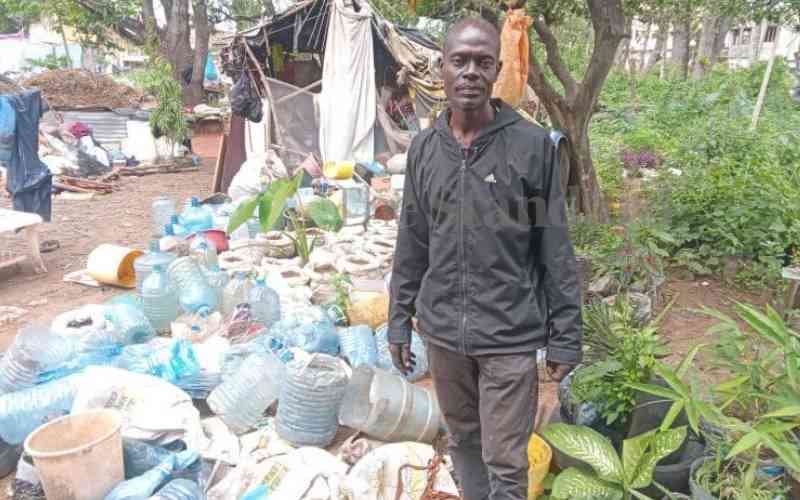×
The Standard e-Paper
Smart Minds Choose Us

For most people, garbage means just that. Garbage. But this is not the case for David Mwangi. Garbage holds a special place in his heart.
He ekes his living from collecting, sorting and recycling garbage in Mtwapa, Kilifi county.